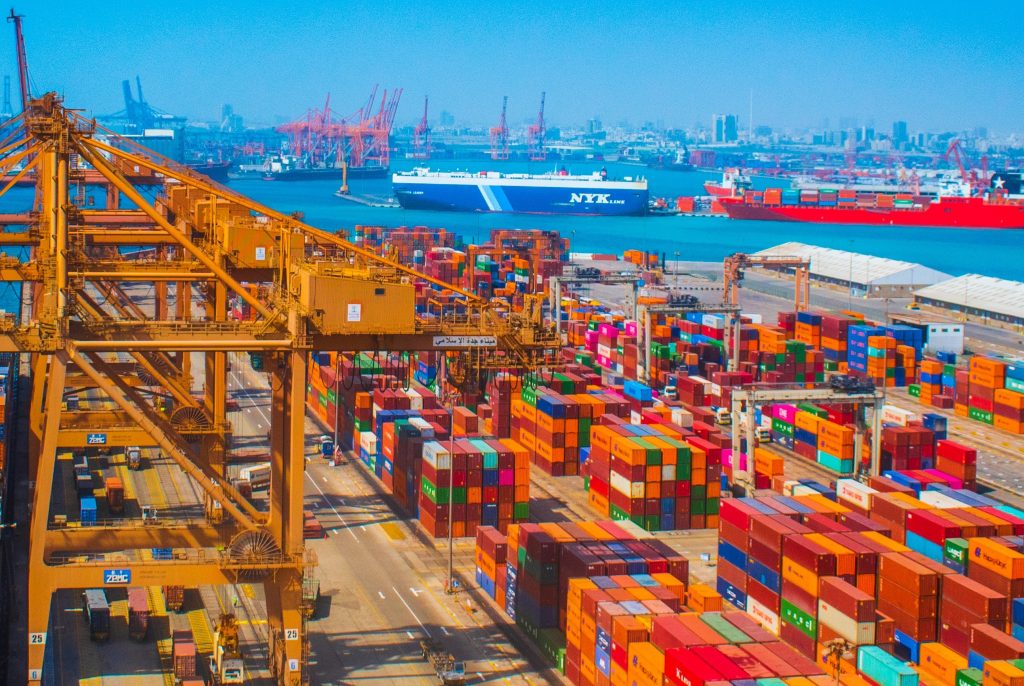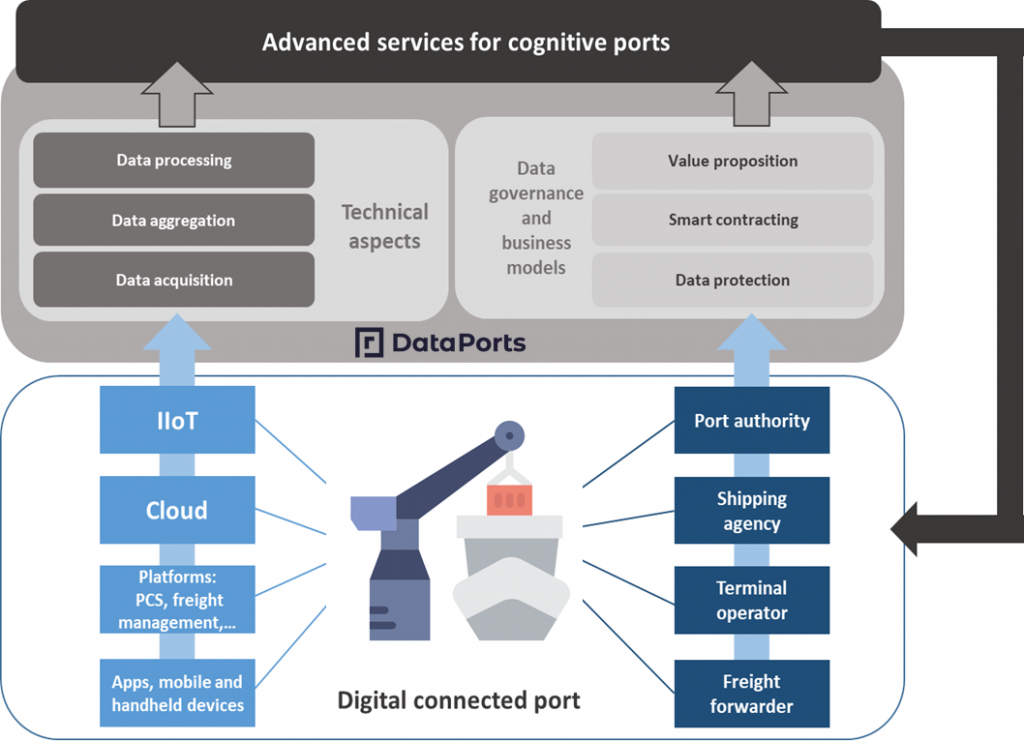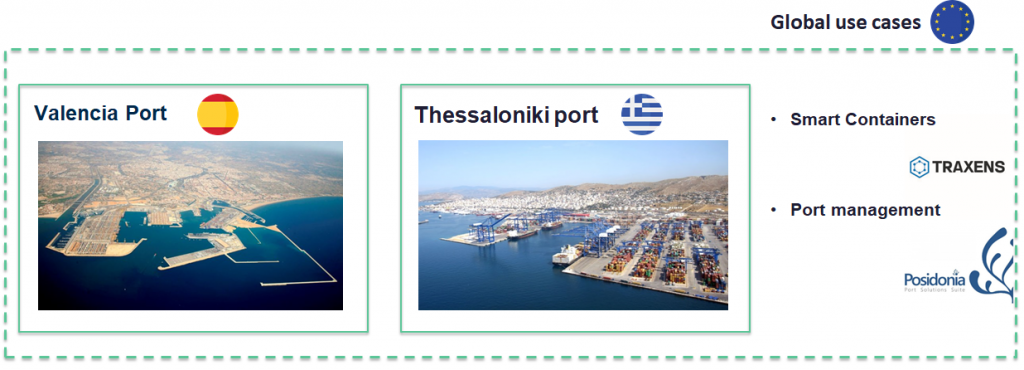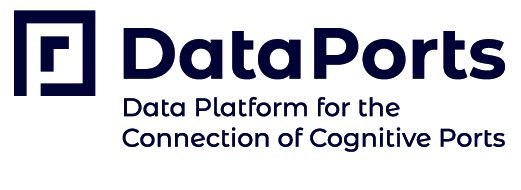A new Industrial Data and Artificial Intelligence Platform aimed at the improvement of the port operations
Freight transport activities are projected to increase significantly in next years, transforming the current mobility and logistics processes to become more efficient. Nowadays, only 3% of container terminals are automatized. However, the future of the port industry point towards smart ports since it is the only way to overcome the challenges and demands that arise in the sector, optimizing port operations, enhancing the supply chain of operators and carriers, and reducing the emissions and waste. Apart from that, the maritime port infrastructure is quite complex. A large number of agents interferes in each port operation thus stagnant silos of information are produced and the real potential of the data cannot be obtained.

Moreover, the mobility and logistics sector can benefit radically from big data technologies, as it already manages massive flows of goods and people whilst generating vast datasets that support innovative Big Data solutions. Big Data can deliver 28% improvement in asset management via predictive maintenance, and an improvement of operational efficiency of 5% via real-time data visualization and predictive analytics. To contextualize, a 10% improvement in efficiency can lead to cost savings of EUR 100 billion in the whole transport sector.
From these needs appears the DataPorts project, a Data Platform for the Cognitive Ports of the Future. The project is devoted to take advantage of the huge amount of data generated around modern connected seaports, and the digitalization that these ports have achieved leveraging on the existing digital platforms and tools. The overall ambition of DataPorts is to implement, set-up and operate an industrial data platform, that will provide the actors of the port communities a secure and trusted environment for the reliable and efficient share and trading of their data. The data coming from different stakeholders and external sources can be combined and processed in the platform to get real value from them, in order to improve existing processes, establish novel cognitive and AI-based applications, and allow new business models.

DataPorts project is part of the Big Data Value Public-Private Partnership and the outcomes from the project will be aligned with one of the pillars of the Big Data Value Association strategy, the “Next-Generation Data and Artificial Intelligence Platforms”. The aim is to get real value from data and to contribute to a leadership position of Europe in the development of next-generation data platforms.
The project involves the design and implementation of the platform, its deployment in two relevant European seaports (Valencia and Thessaloniki) connecting to their existing digital infrastructures and addressing specific local constraints, a global use case involving these two ports and other actors and targeting inter-port objectives. In addition to all the actions to foster the adoption of the platform at European level.

DataPorts platform will contribute to the development of the European shipping and maritime sectors, by fostering the transition of seaports from digital and connected to smart and cognitive, providing new data driven services and business models and improving operations. The project will allow establish a future Data Space unique for all maritime ports of Europe and contribute to the EC global objective of creating a Common European Data Space.
The project has started last January and is founded by the European Commission through the H2020 programme. It is coordinated by the Technological Institute of Informatics(ITI) and rely on the participation of 13 partners from 5 different nationalities:
- Spain: ITI, Everis Spain SL, Universidad Politécnica de Valencia, Fundación ValenciaPort, Prodevelop SL.
- Greece: Hellenic Telecommunications Organisation S. A., Institute of Communications and Computer Systems (ICCS), Centre for Research and Technology Hellas, Thessaloniki Port Authority SA.
- Germany: University of Duisburg-Essen (Paluno), Fraunhofer-Institute for Software and Systems Engineering ISST.
- France: Traxens.
- Israel: IBM Israel.
